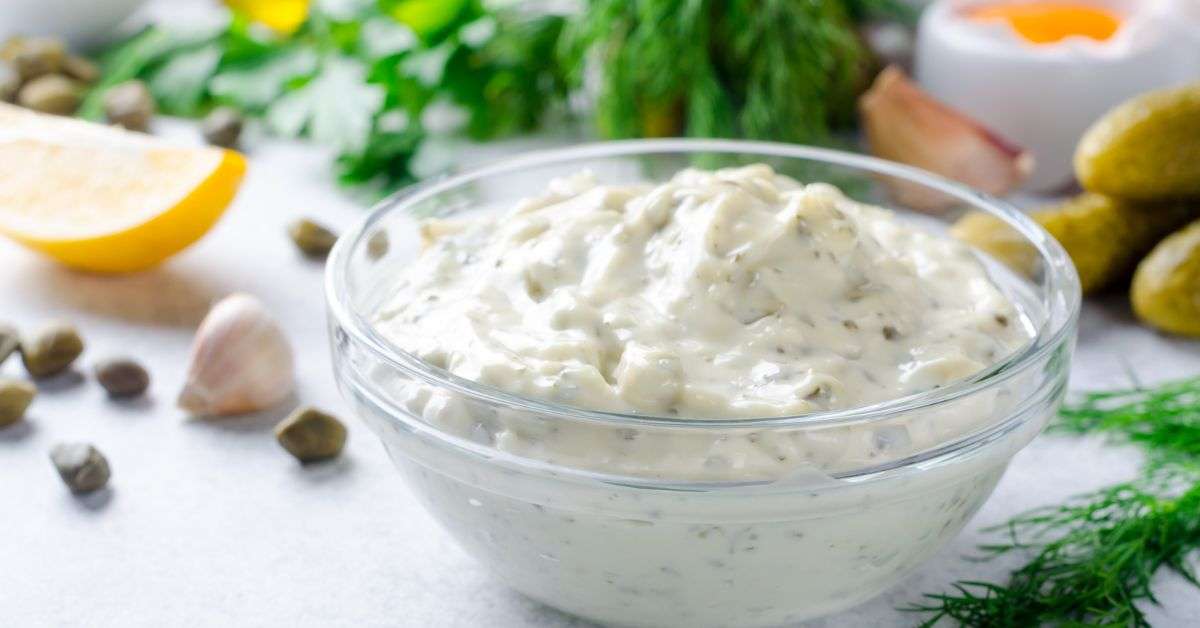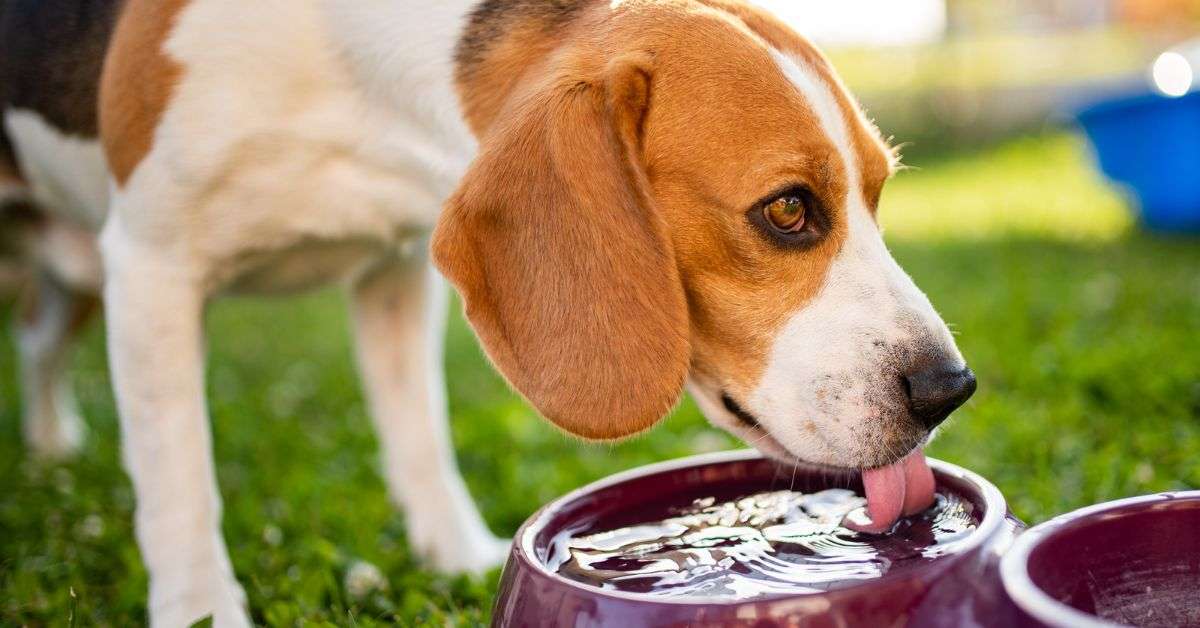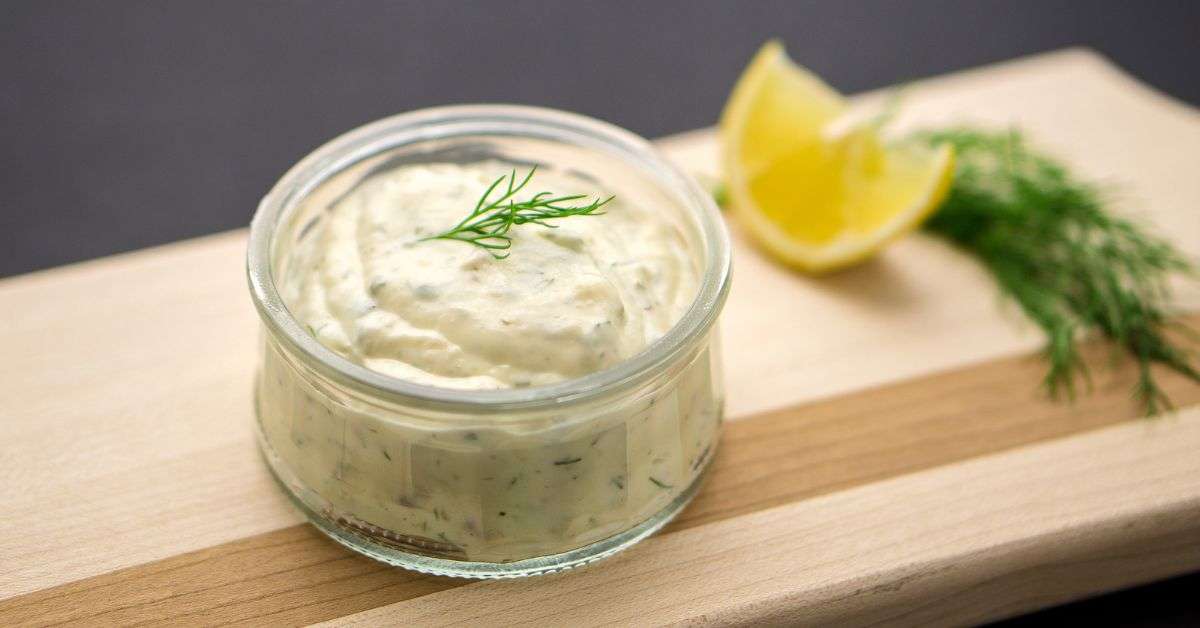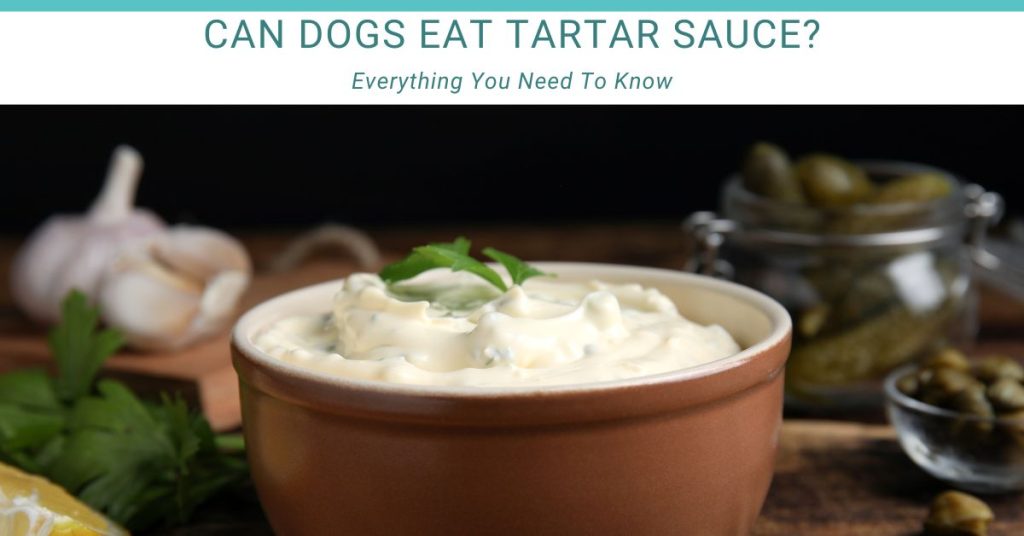Tartar Sauce: Can Dogs Enjoy It Safely?
As a dog owner, you may have found yourself wondering whether it’s safe to share tartar sauce with your pet.
In this comprehensive guide, we’ll delve into the topic of dogs and tartar sauce, exploring the potential risks and benefits involved. Let’s uncover the truth about the question “can dogs eat tartar sauce”.
Is Tartar Sauce Safe for Dogs?
No, tartar sauce is not safe for your dog. You should not allow your dog to eat tartar sauce. The primary concern regarding dogs and tartar sauce lies in the presence of onions and garlic. These ingredients, commonly found in tartar sauce, contain compounds that can be toxic to dogs. They have the potential to damage a dog’s red blood cells, leading to anemia. Avoid giving tartar sauce containing onions or garlic to your dog. Additionally, certain spices and pickles found in tartar sauce may not sit well with a dog’s digestive system, potentially causing gastrointestinal discomfort.
Examining the Ingredients in Tartar Sauce

Tartar sauce is made with the following ingredients:
- Mayonnaise: Tartar sauce is typically made with mayonnaise, which is high in fat. Excessive fat intake can pose risks for dogs, as it can be difficult for them to digest. Feeding foods like tartar sauce that are rich in fat can potentially lead to digestive issues, such as pancreatitis. Pancreatitis is a condition characterized by inflammation of the pancreas and can cause severe discomfort and illness in dogs.
- Pickles: Pickles, which can contain high levels of sodium are often included in a good tartar sauce. Excessive sodium intake can be harmful to dogs, especially those with underlying health conditions like heart disease. High sodium consumption can lead to increased blood pressure and strain on the heart, potentially worsening preexisting conditions or causing fluid retention.
- Onions & Garlic: Tartar sauce may contain ingredients like onions and garlic, which are toxic to dogs. These ingredients contain compounds that can damage a dog’s red blood cells, leading to anemia. It’s important to note that even small amounts of onions or garlic can be harmful to dogs. Avoid feeding tartar sauce or any other foods containing these ingredients to ensure the safety and well-being of your furry friend. Onion or garlic poisoning in dogs can cause gastrointestinal upset, anemia, and even death.
- Herbs & Spices: Various seasonings, spices and herbs are usually found in tartar sauce. Some dogs may be allergic the herbs and spices used in making tartar sauce. Allergic reactions in dogs can manifest as itching, skin rashes, gastrointestinal upset, or even more severe symptoms like difficulty breathing. It’s important to be aware of your dog’s potential allergies and avoid exposing them to allergenic ingredients like those found in tartar sauce.
It is important to note that tartar sauce does not actually contain cream of tartar. Cream of Tartar is an entirely different substance that is toxic to dogs. It can be found in play dough and some other commo household items.
What happens when your dog eats tartar sauce?
If your dog has consumed tartar sauce, watch out for the following symptoms that may indicate an adverse reaction or potential toxicity:
- Gastrointestinal Upset: Vomiting, diarrhea, or excessive drooling.
- Abdominal Discomfort: Signs of discomfort or pain in the abdominal area.
- Loss of Appetite: Decreased interest in food or refusal to eat.
- Lethargy: Unusual tiredness or lack of energy.
- Allergic Reactions: Itching, hives, swelling, or redness of the skin.
- Difficulty Breathing: Labored breathing, coughing, or wheezing.
- Pale Gums: A change in gum color to pale or white.
- Increased Thirst and Urination: Drinking more water and urinating frequently.
- Behavioral Changes: Unusual behavior, restlessness, or agitation.
- Jaundice: Yellowing of the eyes, gums, or skin.
Dog Ate Tartar Sauce, What should you do?
If you suspect or know that your dog has eaten tartar sauce, look for the symptoms that are contain in the list above. If your dog displays any of those symptoms after eating the tartar sauce, here is what you need to do:
- Stay Calm: It’s essential to remain calm and avoid panicking, as this can distress your dog further. In most cases, tartar sauce will only cause some minor issues with a dog.
- Evaluate the Situation: Assess the quantity of tartar sauce your dog has ingested and whether it contained any potentially toxic ingredients like onions or garlic.
- Contact Your Veterinarian: Immediately call your veterinarian or a pet poison helpline to seek professional advice based on your dog’s specific situation.
- Provide Information: Be prepared to provide details such as your dog’s breed, age, weight, the ingredients in the tartar sauce, and the quantity consumed.
- Follow Professional Guidance: Follow the instructions provided by your veterinarian or the pet poison helpline. They may advise you to monitor your dog at home, induce vomiting, or bring your dog to a veterinary clinic for further evaluation.
- Prevent Dehydration: Ensure your dog has access to clean water to prevent dehydration.
- Monitor Your Dog: Observe your dog closely for any symptoms of distress, and keep a record of their behavior, appetite, and any changes in their condition.
- Avoid Self-Medication: Do not attempt to treat your dog at home with over-the-counter medications without consulting a veterinarian first. Some human remedies can be dangerous for dogs.
- Follow Up with Your Veterinarian: Even if your dog appears fine initially, it’s advisable to schedule a follow-up appointment with your veterinarian to ensure there are no delayed or long-term effects.
Remember, immediate veterinary attention is crucial if your dog displays severe symptoms or if you’re uncertain about the safety of the tartar sauce ingested.
Always prioritize your dog’s health and consult with a professional for proper guidance and care. Be sure to keep a bowl of fresh clean water around for your dog, this can help alleviate the symptoms that the dog is experiencing much faster.

FAQ – Dogs and tartar Sauce
Can dogs eat tartar sauce in small amounts?
No, Dogs should not eat even small amounts of tartar sauce. While a small amount or tartar sauce may not cause immediate harm toy our dog, it is important to remember the ingredients such as onion and garlic are toxic to dogs. To be on the safe side only give your dogs condiments that are specifically made for them.
Can dogs be allergic to tartar sauce?
Yes, dogs can be allergic to certain ingredients commonly found in tartar sauce. Dogs can show signs of an allergy to pickles, spices or even the eggs that are in the tartar sauce. Signs of an allergic reaction may include itching or other skin irritations, vomiting, and diarrhea. If you suspect your dog is having an allergic reaction, prevent the dog from eating more tartar sauce and consult your veterinarian for guidance.
Is there a risk of tartar sauce causing pancreatitis in dogs?
Pancreatitis is a serious inflammation of the pancreas and can be triggered by the consumption of fatty or spicy foods. Tartar sauce does contain mayonnaise which is fatty enough to trigger this painful condition in dogs. It’s advisable to avoid feeding your dog tartar sauce or any foods with high-fat or spicy ingredients to reduce the risk of pancreatitis.
Can dogs have cream of tartar?
No, dogs should not eat cream of tartar, it can have toxic effects on dogs. Cream of Tartar is often used in holiday foods can cause permanent injury to your dog’s kidneys. There is an interesting article about the cream of tartar having the same toxic ingredients as grapes and raisins. You may be surprised to learn that cream of tartar is also used to make play dough, which is a pretty common kids toy. So next time your child is playing with play dough, make sure they know not to leave it out where the dog can get at it.

So if you are ever asked, “can dogs have tartar sauce”, you know the answer is an absolute no! It can cause a multitude of issues and the dog will not get any benefit from eating this condiment.
Summary: Can Dogs Eat Tartar Sauce?
- Dogs should not eat tartar sauce, it is one of the top 10 worst condiments a dog can eat.
- Small amounts will not hurt the dog unless if it contains Xylitol, seek a veterinarians care if it contains this harmful substance
- If your dog eats enough tartar sauce to cause GI issues, monitor it for the next few days, give it fresh water and start slowly introduce a bland diet gradually changing over to its normal food over several days.
- For more of our new posts please visit our Homepage.



